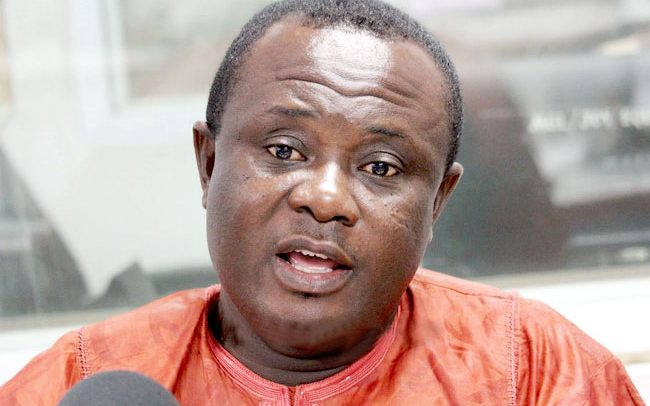Joseph Osei-Owusu
FIRST DEPUTY Speaker, Joseph Osei-Owusu, has hailed a Supreme Court ruling that affirmed that he must be counted as the Member of Parliament (MP) present to constitute the quorum before the decision was taken to approve the 2022 Budget Statement and Economic Policy of the Government.
The Minority NDC had deemed the decision unconstitutional, but the country’s apex court has affirmed it in its ruling on Wednesday.
In an interview with journalists in Parliament, Mr. Osei-Owusu lauded the decision as “very refreshing” for parliamentary democracy, adding, “I am glad that the decision practically affirms the decision that I took.”
“There is still some misrepresentation as to whether I participated in the vote itself on the night of the 30th, and that I must emphasise that everybody who is in doubt must go back and look at the clip. It was a voice vote and I did not participate in it. I insisted that I be counted as the Member of Parliament present to constitute the quorum before the decision was taken,” he stated.
He said after he took the decision, a former Speaker of Parliament called him and said, “I called you to congratulate you for being bold to take the decision because that is how the frontiers of the law are expanded.”
According to him, matters that have never arisen are now in the fore because of the numbers at the chamber. Anytime there is disagreement, as I have said already, I will interpret the rules and laws as I understand them.”
The First Deputy Speaker, who is also the MP for Bekwai, encouraged people who disagree with him to boldly state their positions, “and if need be, refer to the appropriate body like the Supreme Court to guide us.”
“At the end of it all, we are being guided. What we have not done before, where the way was not mapped out by our own standing orders, has now been cleared by the Supreme Court and I think it will help us advance our democracy and practice.”
“We have had a long argument between myself and the Majority Leader. He argues that in his view a Deputy Speaker presiding is entitled to a casting vote. I said that reading the constitutional provision, I tend to agree with him, but I will not make that pronouncement because it is not so clearly stated in the Standing Orders and the Constitution.”
“I will rather [prefer] a body than I will make that declaration. So I am very glad indeed for that clarity, but I am not surprised. The text of the constitution was very clear,” he added.
He parried away suggestions that deputy speakers are referees, saying, “You cannot be a deputy speaker unless you belong to a side of the House; unless you are part of a team.”
“So that analogy [that deputy speakers are referees] in my view is wrong. We belong to teams. Indeed, the constitution under Article 96 is very clear. You must have been sworn in as a Member of Parliament before you can be elected as a deputy speaker.”
“Secondly, it is expected that a deputy speaker will belong to one side or the other; it is not a question of being a neutral person. But all persons, once presiding, are required to be impartial and that is what speakers are required by law to do,” he stated.
Minority
Earlier, the Minority Leader, Haruna Iddrisu, had described the Supreme Court ruling as “very disappointing,” and said the apex court’s decision amounted to “judicial interference in time-tested parliamentary practice and established conventions.”
“Everywhere in the world, in civilised democracies, including the United Kingdom, the presiding officer’s vote is discounted. So it is not for nothing that Article 102 provides that, “A person presiding shall have no original or casting vote,” he argued.
According to him, “the Supreme Court, to put it aptly, this ruling is judicial support for E-Levy. Nothing more, and for a struggling economy in distress, and judicial support for the restoration of a matter that they have said it’s constitutional.”
BY Ernest Kofi Adu, Parliament House


